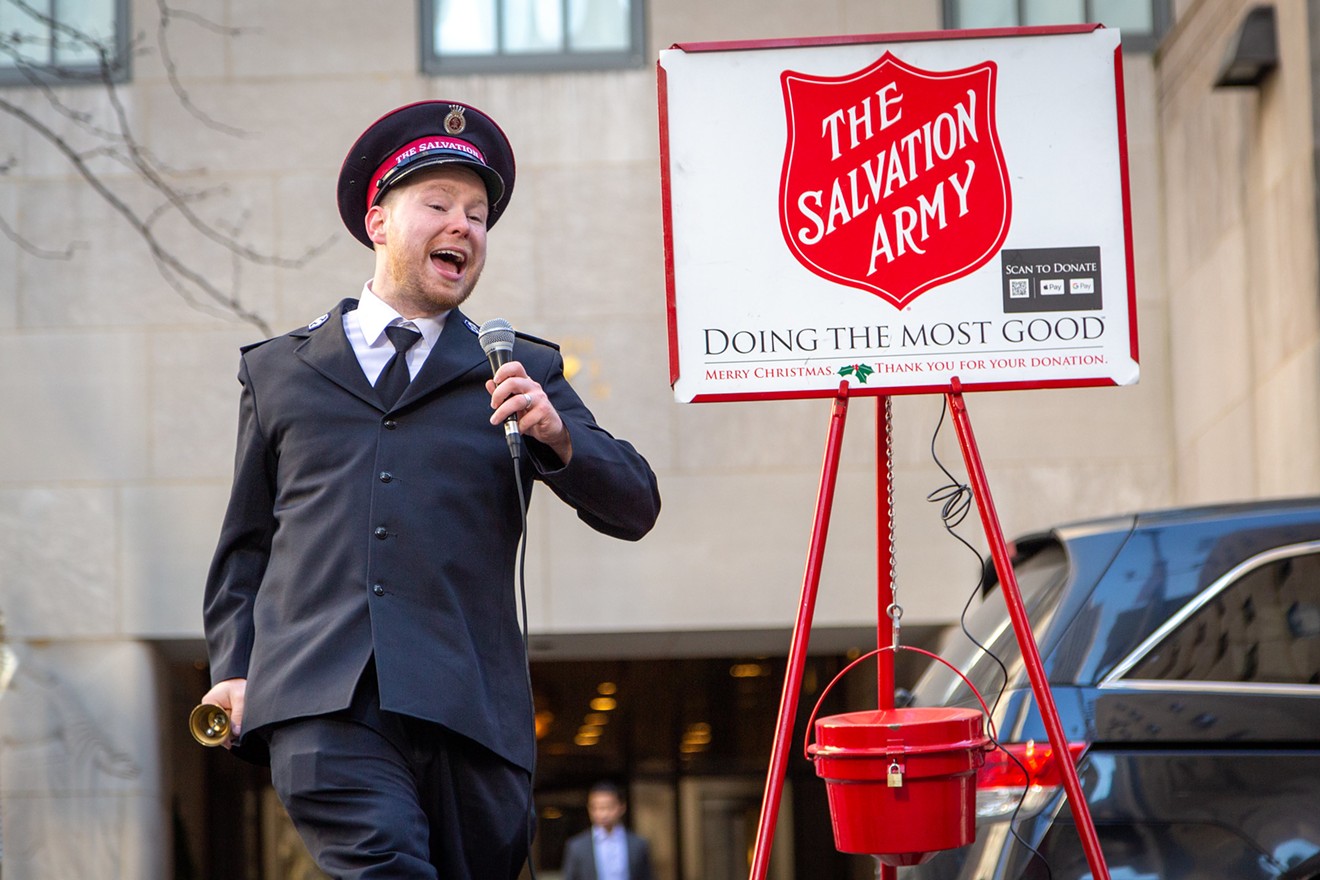The Salvation Army recently trumpeted an anonymous donation in Broward County, where a Good Samaritan deposited two gold coins valued at $3,000, the organization says.
According to a media release, the coins, wrapped in one-dollar bills, were discovered the morning of December 16 by staffers taking stock of cash donations from various red collection kettles. The kettle containing the gold coins was located outside a Walmart in Lighthouse Point.
Sound familiar? That's because you probably saw some iteration of this story in the local media last year and the year before that — five times over. In fact, the Salvation Army's Fort Lauderdale regional office has told some version of this story for the past six years. The donation is said to be the work of the "Coin Crusader."
This holiday phenomenon is not limited to Broward County. Reportedly, gold coins have appeared in donation kettles across the nation for roughly two decades. The fine points vary — the coins' country of origin, their worth, whether they're swaddled in cash or gift wrap — but the basic details are virtually identical.
Last month, in Geneva, Illinois, a one-ounce "Gold Eagle" coin valued at $1,500 was discovered in a kettle in front of a Starbucks, the Chicago Tribune reported.
In Louisville, for the fourth consecutive year, according to the Associated Press, a gold piece was deposited into a Kentucky kettle.
In Fargo, North Dakota, the gold-coin donations date back to at least 2000, according to local news reports.
It's unclear whether the donations — in South Florida and beyond — come from the same source or if there's any connection among them. The Salvation Army says it has never played a role in facilitating these donations, though its messaging over the years, through news accounts and press releases about the anonymous acts, regularly emphasizes the nonprofit is falling short of holiday fundraising goals.
"These random acts of kindness are a wholly unsolicited and unorchestrated tradition that makes a huge impact in helping to sustain more than 80,000 underserved Broward residents, annually," Fort Lauderdale-area commander Stephen M. Long wrote in a statement to New Times.
The Salvation Army's national headquarters echoed the sentiment.
"Our anonymous donors surprise us with their gifts and honor us with their generosity every year," national communications director David Jolley said in a statement. "In addition to gold coins, we've received gold teeth, diamond rings, winning lottery tickets, and more. Some locations frequently receive casino chips, which they redeem at the end of the season."
Meanwhile, on December 17, the nonprofit's Miami office announced it was "significantly behind" its $150,000 fundraising goal. Christmas Eve marks the last day of the annual red-kettle drive.
[
{
"name": "Air - MediumRectangle - Inline Content - Mobile Display Size",
"component": "19274298",
"insertPoint": "2",
"requiredCountToDisplay": "2"
},{
"name": "Editor Picks",
"component": "17482312",
"insertPoint": "4",
"requiredCountToDisplay": "1"
},{
"name": "Inline Links",
"component": "18711090",
"insertPoint": "8th",
"startingPoint": 8,
"requiredCountToDisplay": "7",
"maxInsertions": 25
},{
"name": "Air - MediumRectangle - Combo - Inline Content",
"component": "17482310",
"insertPoint": "8th",
"startingPoint": 8,
"requiredCountToDisplay": "7",
"maxInsertions": 25
},{
"name": "Inline Links",
"component": "18711090",
"insertPoint": "8th",
"startingPoint": 12,
"requiredCountToDisplay": "11",
"maxInsertions": 25
},{
"name": "Air - Leaderboard Tower - Combo - Inline Content",
"component": "17482313",
"insertPoint": "8th",
"startingPoint": 12,
"requiredCountToDisplay": "11",
"maxInsertions": 25
}
]












